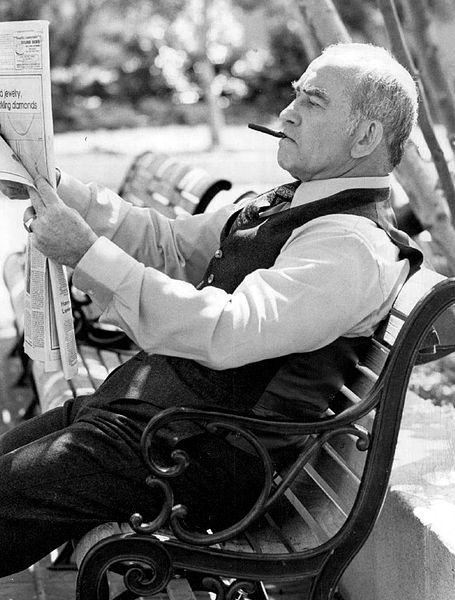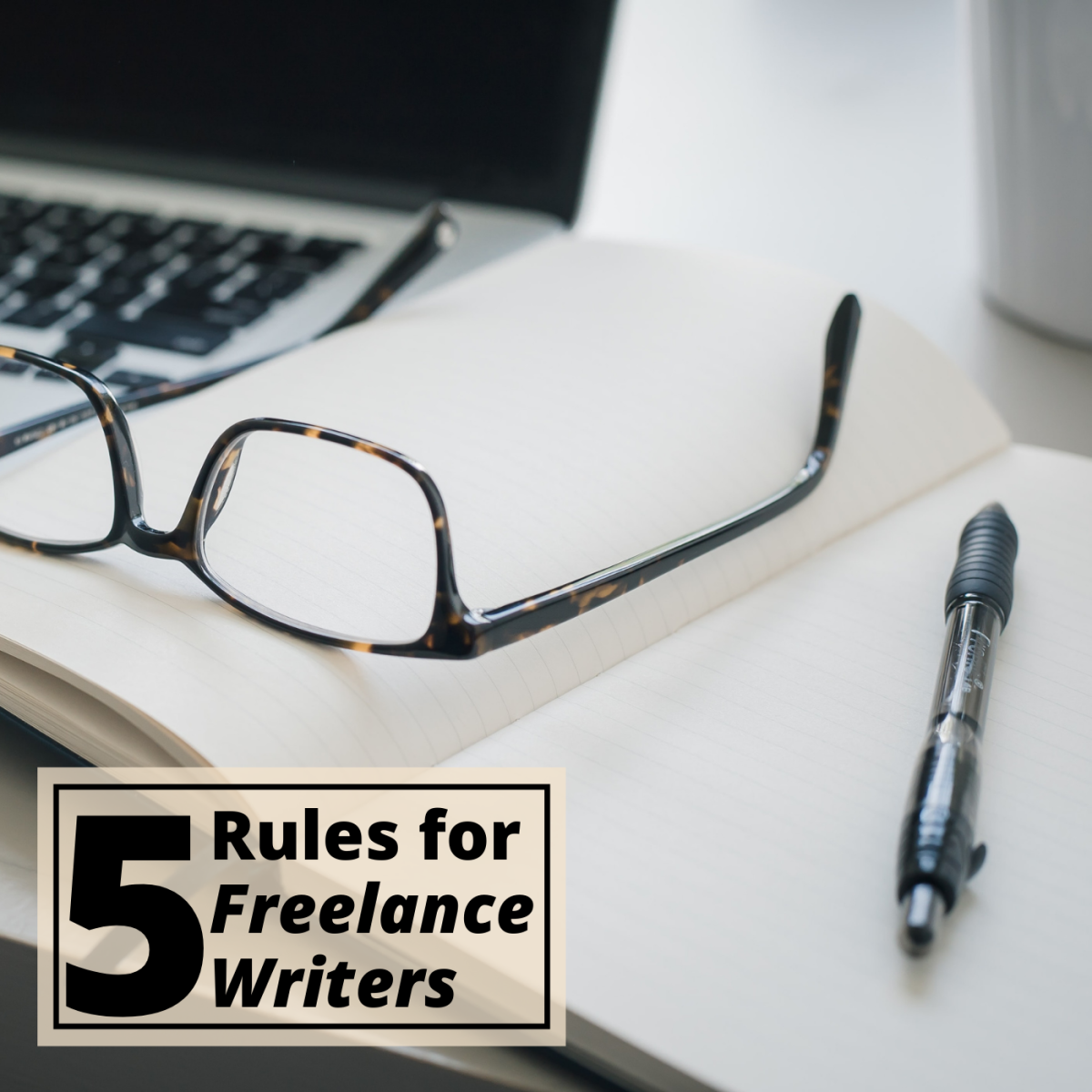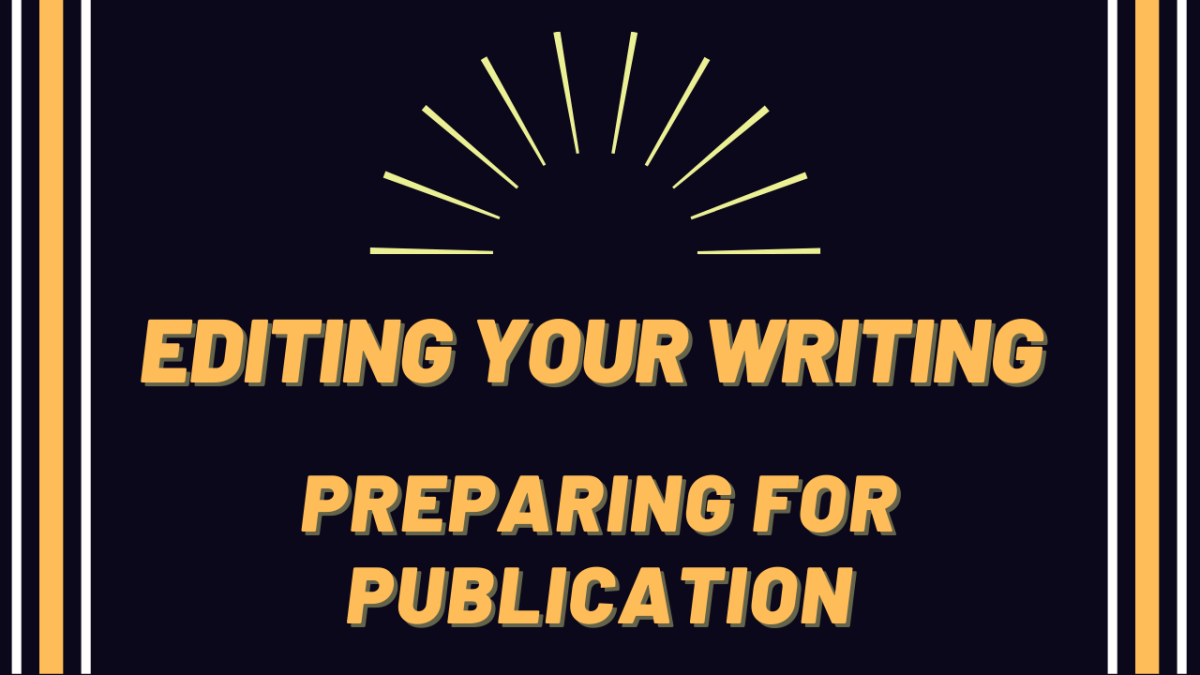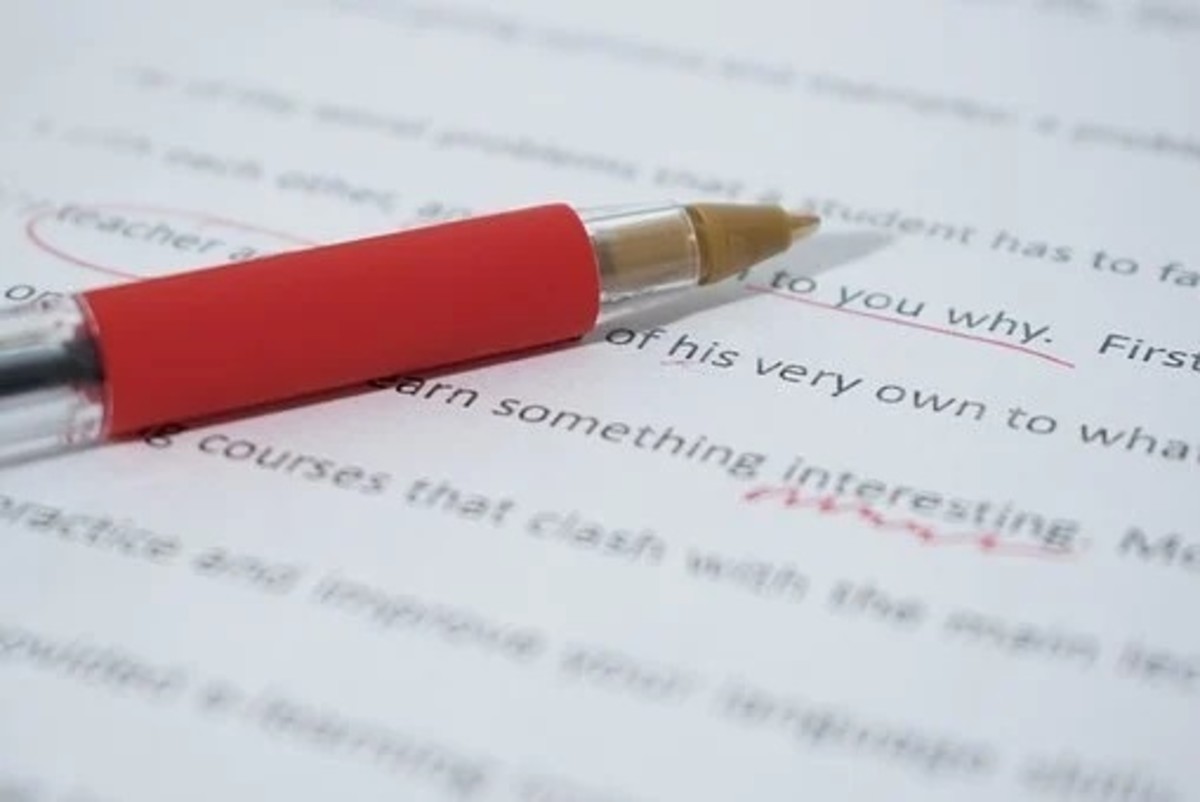Should You Edit Your Own Writing?

The quick and easy answer to the question posed is Of Course. You and I must edit as we go, not necessarily after each page or chapter, but before your book is ready for the next step. And what, you may ask, is the next step? It is to hire a professional editor or editorial service. I say hire because that is the most likely choice. If you have a good friend or colleague who is an editor, you may be able to get by without laying out money. Barter is a common financial device for finding editorial services.
This article was inspired by a recent professional editing job I hired out for a soon to be published novel. The editor was Bill Holland of Olympia, Washington, known to writers on HubPages as billybuc. I was thoroughly pleased, and wanted to get my thoughts down to memorialize my experience. More on Bill later.
This article is about book writing. If you're writing a modest sized article for a newspaper or an Internet site, you may not be able to afford an editor. The job of editing is then up to you. But, because it's an article, the job is not onerous. But even with an article it's a good idea to have it read by your spouse, significant other or a friend.
Self editing is part of the job of writing. But don't confuse self editing with anything approaching a final edit. There is a huge difference. It's just plain foolish to submit a manuscript to an editor without having gone over it yourself. Not only will there be simple readily changeable mistakes, there may be illegible words. Your job is not to make an editor's job easier, but it is your task to cooperate with an editor to bring the best manuscript possible into the daylight.
When to Edit - As You Go or After You Finish the Book?
There's no definitive answer to that question, but I do make a suggestion. I recommend that you complete the manuscript BEFORE you go back and rewrite. Rewriting, of necessity, also means editing. It is best done after you have finished the story, rather than doing it piecemeal. By doing so you get your story out onto paper, and you save the rewrite for after it's done. To do otherwise is sheer drudgery. Ernest Hemingway famously said that "The first draft of anything is shit." He's right, and that quote isn't negative, it's realistic. There is always a better word, a fixed up sentence, a grammatical or spelling correction. That's what rewriting is all about. I don't distinguish, as purists may, between rewriting and editing. They go hand in hand. If, during rewrite, you determine that you're only going to look at flow and consistency, you're going to leave a lot of errors to pick up later, if you do at all.
Why You Shouldn't Final Edit Your Own Work
I was an editor for over 25 years. I edited articles in legal periodicals published by a company that I owned. I was persnickety as hell. You have to be when your audience consists of lawyers and judges. But, and here's the important part, I was editing the work of my reporters, not my own. Big difference. Why is there a difference? It's because you are too familiar with your own work, and there is a natural human tendency to go fast and skim because you're so familiar with the words. As you're editing your own words, you read quickly and mentally say "Yup, yup, yup, yada, yada, yada." It seems so natural to go quickly because you know this stuff. Hell you wrote it. And it is natural to be cursory with your own writing. It just happens, and that's the big problem. An independent editor hasn't read your words before, and is not invested in how brilliant you are, or may think you are.
A Few Self Editing Tips
The thesis of this article is that you should use an independent editor, and I ain't budging from that position. But, for the necessary job of self editing before it goes to the editor, here are a few things I've picked up. There has been a lot of writing on this subject, and I suggest that you read every article on it that comes across your desk. You can't rely on spelling software, such as Microsoft's excellent spell checker in Word, because often a mistake is okay in the eyes of the spell checker.
- Search for the word "you." Pour yourself a cup of coffee first because this is tedious, but it's worthwhile. Each time a part of the word "you" is highlighted, you can see if it's really meant to be you or your or you're or yours. This is a common mistake in writing, and often it's not a mistake of your brain, but a slip of your fingers as you type. I make this error all the time, seeing sentences like: "You need a plan for you business." This is so easy to miss just going line by line, so use the wonders of word processing to your advantage.
- Search for the word "Its." Yes, more drudgery, but it's worth it. "It's" is a sentence, a contraction for "It is," as in, "It's easy to screw up this word." "Its" on the other hand, is a possessive pronoun, as in "Its color was golden." Again a common mistake, and your word processor makes life simpler. But, obviously, you can't do a simple find and replace. You have to look at the word. Spell Checker does make it easier because the mistake should be (but not always is) underlined in red.
- Look for overly-attributed or under-attributed dialog. The reader should never ask "Who's saying this?" Nor should the reader say "Well obviously it's Joe, because only two people are speaking." Therefore "Joe said" is unnecessary. It's just plain awkward and easy to correct. Also, when you must attribute the speaker, use "He (or character name) said" or "she said." Avoid saying something like "he expostulated." This is not an ironclad rule, nor should it be. Nelson DeMille writes some gems like, " 'Go fuck yourself.' Joe recommended." Okay, that's funny. It's also DeMille, a guy who knows how to say these things. I thank Bill Holland for nailing me on my over attribution of speakers in dialog.
- Watch your adverbs. They can be a lazy way of writing. Rather than say, "Who the hell is that?" said Joe excitedly, say "Who the hell is that?" said Joe as he slammed down his coffee cup.
- "Murder Your Darlings." This was first used by Sir Arthur Quiller-Couch, but is often attributed to Faulkner as well as Stephen King. It's a perfect phrase and a useful one. It means to edit out words and phrases that you wrote because you thought they were brilliant, witty or erudite. In novels, they call attention to the author, often to the detriment of the story. Some authors will make blatant political diatribes, thereby alienating about half the population that may not share the writer's views. On rewrite, if you see a witticism of yours, take it out. You can get away with this in nonfiction, but just make sure you are being literate, not cute.
- Read The Elements of Style by Strunk and White. Just do it.
- Use the Chicago Manual of Style, especially for nonfiction. If you're citing a book or an article, do it right or don't do it at all.
Traditional or Self Publishing - Hire a Professional Editor
You err if you think that you don't need to have your manuscript professionally edited before you pitch an agent or publisher. This should be obvious. Your job is to put your best foot forward. If you submit a manuscript that's replete with errors, it will be rejected. If you intend to self publish, hiring an editor is essential, lest you publish crap.
As I said in the beginning of this article, I used the services of Bill Holland (www.williamdholland.com - holland1145@yahoo.com). He charged a reasonable fee, performed proofreading, grammatical and spelling editing, as well as making suggestions on plot and character development. He edited an 84,000 word manuscript in three weeks, and delivered it sooner than promised. He did things to my manuscript that I missed, including murdering a few of my surviving darlings (the heartless cad!). He also pointed out gaps in characters that I didn't know were there, perhaps because I was so close to the characters I thought the reader was too. And that's the point with hiring a professional editor. He or she can see things that you can't. That alone is worth the price of admission.
Got a manuscript? Hire an editor.
Copyright © 2013 by Russell F. Moran








